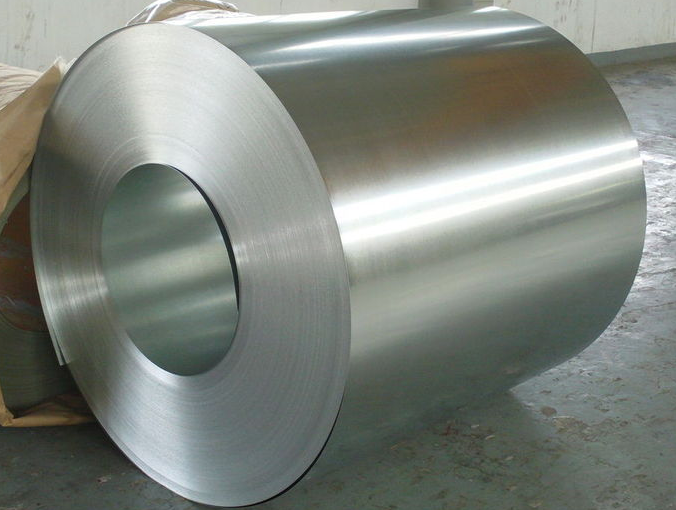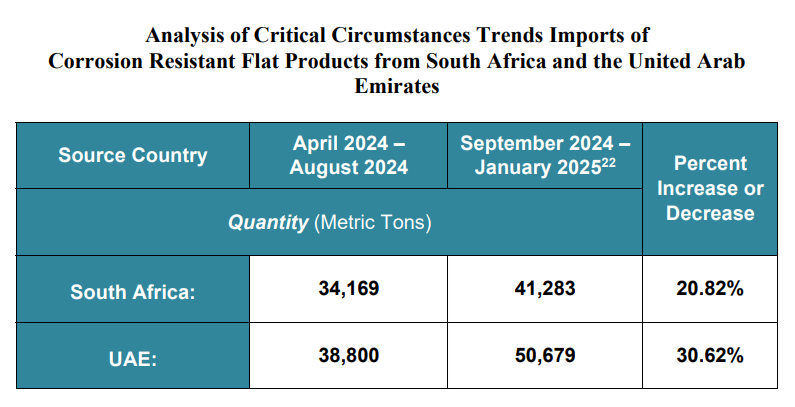Government/Policy

February 20, 2025
Mills allege 'critical circumstances' in CORE trade case vs. South Africa, UAE
Written by Laura Miller
US petitioners in the corrosion-resistant (CORE) steel trade case have made ‘critical circumstances’ allegations against South Africa and the United Arab Emirates.
Attorneys for Nucor, U.S. Steel, Wheeling-Nippon Steel, Steel Dynamics, and the United Steelworkers sent a letter to the Department of Commerce on Feb. 18 requesting the application of “critical circumstances” in the ongoing antidumping investigations against the two countries.
Critical circumstances exist when there are “massive imports” over a “relatively short period” of time, according to Commerce’s rules. An increase of 15% or more in imports from a base period is considered “massive.”
“Based upon information that is available to petitioners, imports of CORE have surged into the United States, and recent activity in the marketplace strongly indicates that these imports are being rushed into the United States in an effort to avoid the imposition of antidumping duties,” counsel for the petitioners said the letter seen by SMU.
Coated sheet imports from South Africa soared 21%, and UAE jumped 31%, according to the petitioners’ findings, which can be found below.

Since these allegations have been made against South Africa and UAE, both Commerce and the International Trade Commission will investigate the claims. If they both make affirmative findings, AD duties will be applied retroactively 90 days prior to Commerce’s preliminary determination, which is due by April 3.
If critical circumstances are found by both agencies, importers of CORE from South Africa and UAE will have to pay the antidumping duties on imports that entered the US starting on Jan. 3.
The original antidumping trade petitions were filed in September against Australia, Brazil, Canada, Mexico, the Netherlands, South Africa, Taiwan, Turkey, the UAE, and Vietnam.
Subsidy investigations are also ongoing against Brazil, Canada, Mexico, and Vietnam. Commerce set preliminary countervailing duty (CVD) rates earlier this month.







